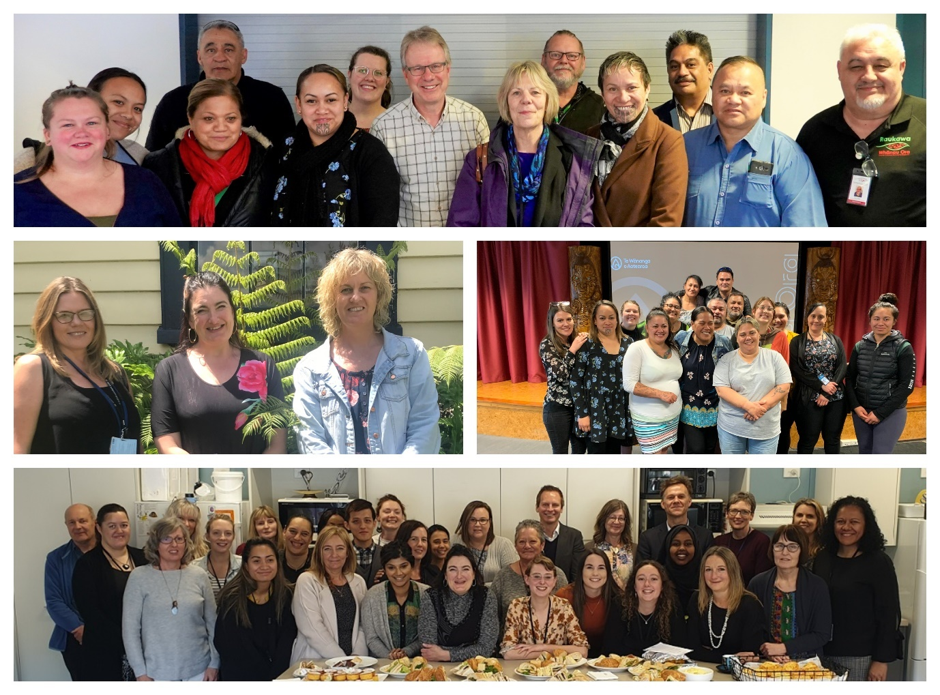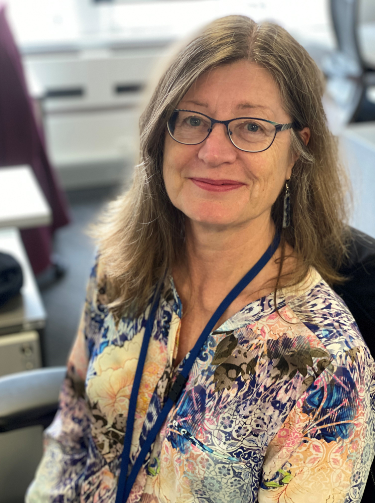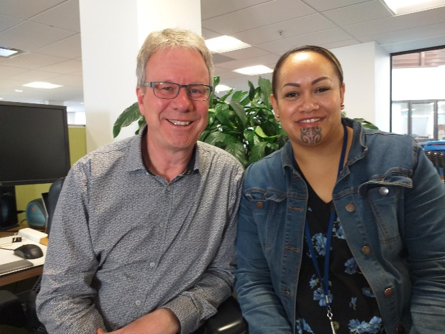Welcome to the first newsletter of the new year and a new decade.
As we begin the countdown to mandatory registration in early 2021, there is a busy year ahead. We will be getting out and talking to social workers, social work students and employers with our roadshows and there is also a major programme of work underway at the SWRB. I’ve talked before about how the shift to mandatory registration will enhance the standing of the profession, as it takes its place alongside other regulated professions.

This is one step in the social work journey to enhancing the professionalism of the sector. Among other steps the SWRB will be working on:
- developing a Scope of Practice for social work, as required under the Act.
- making changes to the experience pathway: S13 registration
- developing policies for the new mandatory environment, and
- reviewing frameworks for competence and education.
We will be engaging with social workers and the sector on much of this work and hope that you will be contributing to the areas that interest you. You can find out more about this later in the newsletter.
Sarah Clark, Chief Executive
Roadshows
We’re looking forward to getting out on our roadshows this year, going firstly to:
- Christchurch – 4th Feb
- Rotorua – 21st/22nd Feb
The event in Christchurch is proving very popular so we are moving to a larger venue. If you would like to attend, click on the following link. We will be returning to the city in the following month for those unable to make the February date.
The roadshows are for all social workers (registered or yet to register) and involve information to explain the impact the changes to the Act will have for the sector, including mandatory registration. There’ll be the opportunity to kōrero and ask any questions you might have.
There will be roadshows to other areas throughout the year.

Meeting social workers and social work students is a highlight.
Scope of Practice
As mentioned, the SWRB has been tasked with developing a Scope of Practice for social work in Aotearoa New Zealand.
A discussion document has been written which you can find here outlining the approach we are taking to determine what it should include, who it will apply to, and what will inform its development that is unique to our country.
We want all social workers (registered or yet to register) to engage with the Scope of Practice.
This is an important moment in history for our profession, and an opportunity for us to come together across the various settings within which social work is practised, to reflect the purpose, activities and methods specific to social work.

We want to support the kōrero in any way that we can. The discussion document includes several ways you can engage and provide your feedback which needs to be back to us by Friday the 20th of March.
We will be joining with ANZASW to facilitate a discussion on scope following the information session in Christchurch.
We will also facilitate a discussion by Webinar on the 27th February – this date marking one year until registration becomes mandatory. You can register for that session here
Diane Garrett RSW, Principal Policy Advisor
CPD audit
During the first part of February we will be selecting (randomly) approximately 350 social workers from our database, and writing to let them know that they have been chosen to have their CPD logs reviewed.
The logs will be sent to external reviewers who are registered social workers, and who will look through each of them checking that CPD has been undertaken, is relevant, and includes critical reflection.
While we do this review only once a year, it is important to keep your CPD logs up to date. The CPD log aligns with the Practising Certificate period, which runs from July to June.
You can find more information about CPD here.
Tribunal decision
The Social Workers Complaints and Disciplinary Tribunal has delivered its ruling in the case involving registered social worker Robert Luisi, who was employed as a social worker but was found to have worked without a practising certificate for several years. The Tribunal censured Mr Luisi and ordered him to pay a fine and a portion of costs. The full decision is available here.
The Tribunal finding highlights that where a social worker is using their social work knowledge and skills in their job, they are required to hold a Practising Certificate.
In previous decisions, the Tribunal has explained that a person can be employed or engaged as a social worker even where his or her job title is not “social worker”.
The development of the Scope of Practice will help provide clarity for social workers and employers about what is included as social work practice (as a regulated profession).
Serious misconduct
We’d like your input – there have been a number of changes about what is considered serious misconduct which are important to be aware of, and some input from social workers would also be really helpful.

Firstly, serious misconduct has now been defined by the Social Workers Registration Act. The Act also requires the employers of social workers to report to the SWRB anything that may be considered serious misconduct, and for the SWRB to develop criteria for when a report is needed.
To do this, the SWRB has developed a draft set of criteria and would like your feedback. While these criteria will be used by employers, it is vital that all social workers understand and can contribute to them.
You can view the draft criteria and more information here. Please read this and email us before 28 February 2020 to have your say.
Julie Marshall, Senior Policy Advisor (Operational)
Experience pathway: S13
We are in the process of updating and developing a number of our policies, including the Experience Pathway: S13. This will provide an opportunity for people who have extensive experience practising social work in New Zealand to apply to become registered under this pathway. Experience is taken to be working as a social worker for 10 -15 years or longer. This application does not require a social work qualification but does need to meet the following principles.
These principles, which have been approved by the SWRB Board, will guide our assessment of whether a social worker has enough practical experience to become registered.
Social workers applying through the experience pathway: S13 must be:

- Experienced
- Knowledgeable and competent
- Skilled
- Fit and proper
- Professionally connected
- Ethical and reflective
- Endorsed
The principles use multiple reference points to assess the practical experience of the social worker.
The endorsement of professional colleagues, co-workers, supervisors, and the applicant’s self-assessment, along with any qualifications, provide a robust framework to consider suitability for registration. We will be engaging with sector leaders about the new process.
Andrew Thompson RSW, Principal Advisor Social Work and Patsy Kainuku RSW, Senior Māori Advisor

